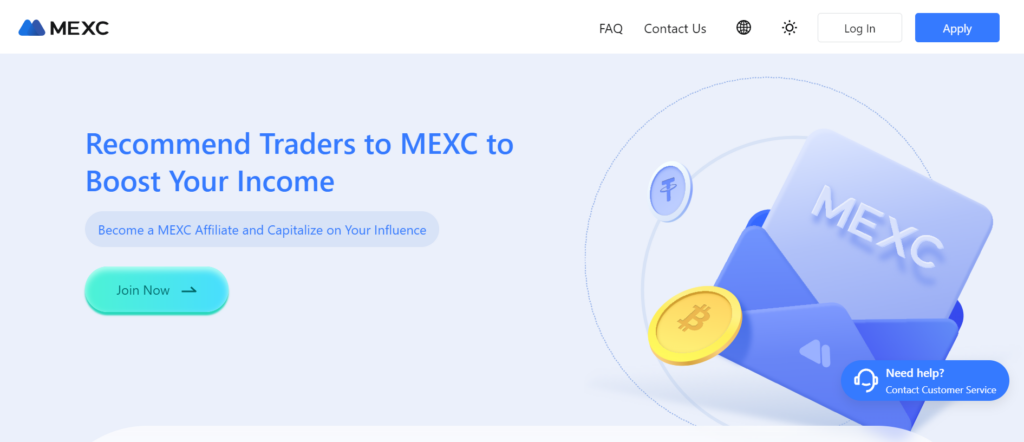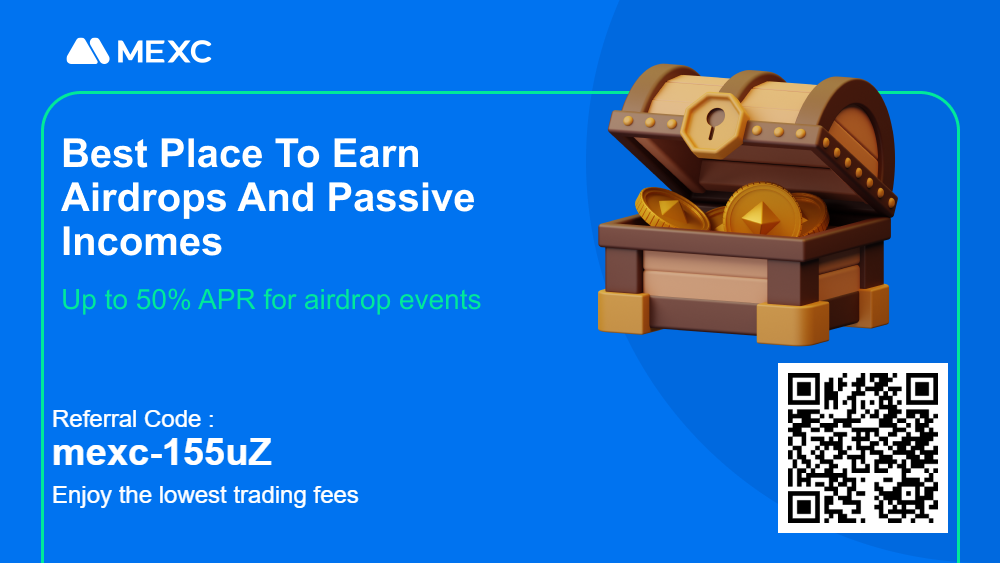In the dynamic world of digital entrepreneurship, our unwavering expertise shines brightest when exploring affiliate marketing’s intricacies. As proponents of diverse crypto affiliate programs, we’re perfectly positioned to unravel a question that’s on many minds: Is affiliate marketing a pyramid scheme?
Table of Contents
Understanding the Basics
Definition of Affiliate Marketing:
A business model where individuals or partners promote a product or service, earning commissions for each successful sale or action.
Definition of Pyramid Scheme:
A fraudulent investment strategy, where returns for older investors are sourced from the funds of newer recruits, rather than genuine business activities.
Definition of Cryptocurrency:
A digital or virtual form of currency, secured by cryptography, which makes counterfeiting or double-spending nearly impossible.
Demystifying Affiliate Marketing

1. What is Affiliate Marketing?
Affiliate marketing is a performance-based marketing strategy where businesses reward external partners (affiliates) for directing traffic or sales to their products or services through the affiliate’s marketing efforts.
2. The Affiliate Marketing Ecosystem
- Merchants/Advertisers: These are businesses or individuals offering a product or service. They create affiliate programs to encourage promotion of their offerings.
- Affiliates/Publishers: These are individuals or companies that promote the merchant’s products or services. They use specific tracking links to ensure sales or leads are attributed to their efforts.
- Affiliate Networks: These are platforms that act as intermediaries between merchants and affiliates. They handle link creation, tracking, and payment processes.
- Customers: The end-users who make a purchase or engage with a product/service due to affiliate marketing efforts.
3. How Does Affiliate Marketing Work?

- Affiliation: An individual or company signs up for a merchant’s affiliate program.
- Link Generation: The affiliate receives a unique tracking link to promote the merchant’s products or services.
- Promotion: The affiliate promotes the product/service using this unique link on their platform, whether it’s a blog, social media channel, or website.
- Commission: When a customer makes a purchase or takes a desired action (like signing up) through this link, the affiliate earns a commission.
4. Types of Affiliate Marketing Models
- Pay Per Sale (PPS): Affiliates earn a commission when the referred customer makes a purchase.
- Pay Per Click (PPC): Affiliates earn based on the number of clicks generated through their referral link, irrespective of sales.
- Pay Per Lead (PPL): Affiliates earn a commission when a referred visitor takes a specific action, like signing up for a newsletter or filling a survey.
5. Benefits of Affiliate Marketing
- Win-Win Scenario: Merchants increase sales without upfront advertising costs, and affiliates earn commissions without the hassle of creating products.
- Low Entry Barrier: Individuals can start with minimal investment, often just requiring a platform (like a blog or social media account) and time.
- Passive Income Potential: Once established, and with consistent traffic, affiliate marketing can generate revenue without continuous active effort.
- Flexibility: Affiliates choose which products or services to promote, allowing alignment with personal interests or audience preferences.
6. Challenges in Affiliate Marketing
- Dependency: Affiliates rely on merchants to provide quality products, accurate tracking, and timely payments.
- Competition: The low barrier to entry means many affiliates may promote the same products, leading to competition.
- Changing Commission Structures: Merchants might change their affiliate terms, which can impact earnings.
Unmasking Pyramid Schemes
1. What is a Pyramid Scheme?
A pyramid scheme is a form of investment where each participant recruits others to join. Money made by the new members funnels up to the higher levels. Typically, pyramid schemes promise high returns in a short time for doing nothing other than recruiting new members.
2. Key Characteristics of Pyramid Schemes
Recruitment Emphasis
Central to pyramid schemes is the emphasis on recruitment. Participants are promised payments for recruiting new entrants rather than any investment or sale of products/services.
Unsustainable Model
Pyramid schemes are inherently unsustainable. Without a continual influx of new participants, funds dry up, and the pyramid collapses, leading to losses for the majority of participants.
Lack of Genuine Product or Service
Though some pyramid schemes might mask themselves under the guise of legitimate multi-level marketing businesses by offering products, the primary income often doesn’t come from the sale of these products but rather from recruitment.
3. Risks Associated with Pyramid Schemes
Inevitable Collapse
Due to its structure, it’s not a question of if, but when a pyramid scheme will collapse. When new recruits become scarce, the scheme falls apart, leading to huge losses, especially for those at the bottom.
Legal Repercussions
Pyramid schemes are illegal in many countries. Participation can lead to legal consequences, including fines and imprisonment.
Financial Losses
The majority of participants in a pyramid scheme end up losing money. Only those at the very top, often the creators, make significant gains.
4. Pyramid Schemes vs. Legitimate Multi-Level Marketing (MLM)
While both pyramid schemes and MLMs have a hierarchical structure, there are crucial differences:
Product/Service
MLMs have genuine products or services to offer. Income is generated from sales, not just recruitment. Pyramid schemes, on the other hand, rely almost entirely on recruitment for income.
Earnings
In a genuine MLM, earnings are based on sales, either from direct selling or sales by recruited members. In pyramid schemes, earnings are primarily based on the number of recruits.
5. Red Flags of Pyramid Schemes
Recruitment Over Sales
A heavy emphasis on recruiting over selling a product is a significant red flag.
High Initial Investment
Many pyramid schemes require new participants to make a sizable investment or purchase expensive starter kits.
Vague Descriptions
Pyramid schemes often use vague, complex terminologies to describe their “business model” to confuse and entice potential recruits.
Promises of High Returns with Little Effort
Be wary of any scheme that promises significant returns in a short time with little to no effort.
Contrasting Affiliate Marketing with Pyramid Schemes
| Criteria | Affiliate Marketing | Pyramid Scheme |
|---|---|---|
| Primary Objective | Promote products or services of a company and earn a commission for every sale or action made through your referral. | Recruit more participants to invest in the scheme, and the returns for earlier participants are paid using the investments of newer participants. |
| Revenue Source | Earned through legitimate sales of products or services. | Predominantly earned through recruitment fees and the investment of new members. |
| Sustainability | Sustainable as long as there’s demand for the promoted product or service. Products have intrinsic value. | Unsustainable in the long run. As recruitment slows down, the scheme collapses, leaving newer members with losses. |
| Legal Standing | Legal in most jurisdictions when done ethically and transparently. | Illegal in many countries due to its fraudulent and unsustainable nature. |
| Business Structure | Structured around sales and marketing. Affiliates can work independently without recruiting others. | Hierarchical structure where income is based on recruitment. The more people you recruit, the more money you supposedly make. |
| Skill Set Required | Marketing, sales, SEO, content creation, and understanding of the products/services being promoted. | Primarily persuasion and recruitment skills. |
| Financial Risk | Generally low. Affiliates might incur costs for marketing efforts, but they aren’t required to “buy-in” with large amounts. | High. New members often have to make a significant initial investment with the promise of high returns. |
| Transparency | Most affiliate programs are transparent about commission rates, payment methods, and terms of service. | Pyramid schemes often lack transparency. They might disguise recruitment fees as “starter kits” or “investment opportunities” with vague promises of returns. |
| End Consumer Benefit | Customers receive actual products or services in exchange for their money. | There’s often no genuine product or service of value being exchanged. Money is simply shifted upwards in the pyramid. |
| Duration of Viability | As long as the affiliate promotes valuable products and maintains trust with the audience. | Typically short-lived. Once new recruitment slows or stops, the pyramid collapses. |
This chart aims to clarify the main differences between affiliate marketing and pyramid schemes. While the two might seem similar superficially, especially to those new to either concept, they are fundamentally different in their operations, objectives, and outcomes.
Busting Affiliate Marketing Myths

1. Myth: Affiliate Marketing is a Quick Route to Riches
Reality
While there are success stories of affiliates making significant amounts quickly, affiliate marketing generally requires time, effort, and strategy. Consistent work, understanding the target audience, selecting the right products to promote, and evolving with market trends are critical. Like any business venture, some will earn more than others, but viewing it as a guaranteed get-rich-quick model is misleading.
2. Myth: The Market is Too Saturated
Reality
The digital world is vast. While there might be many affiliates promoting popular products, there are innumerable niches and audiences yet to be tapped. The key is to find a niche where you can provide unique value, offer insights, or address specific problems that aren’t widely discussed. Tailoring content and marketing strategies to a niche audience can lead to better engagement and conversion rates.
3. Myth: Only Big Influencers Succeed
Reality
Success in affiliate marketing doesn’t necessarily hinge on having a massive following. Micro-influencers or even individuals with a modest but highly-engaged audience can achieve substantial results. Often, trust and engagement levels matter more than sheer numbers. An audience that values and trusts an affiliate’s recommendations is more likely to make purchases based on their advice.
4. Myth: Affiliates Just Want to Make a Sale
Reality
While the ultimate goal is to generate sales and earn commissions, successful affiliates prioritize their audience’s needs. They often invest time in understanding products, testing them, and providing genuine reviews. Trust is a significant currency in affiliate marketing. Affiliates who are perceived as only being out for a quick sale, without considering their audience’s best interests, often find it challenging to succeed in the long run.
5. Myth: Affiliate Marketing is Passively Simple
Reality
While one of the appeals of affiliate marketing is the potential for passive income, building to that point requires active effort. Setting up a website, creating content, optimizing for SEO, staying updated with products, and engaging with the audience are active tasks. Once a strong foundation and steady traffic are established, affiliates might earn passive income, but getting there demands dedication.
6. Myth: More Traffic Always Equals More Revenue

Reality
While traffic is a vital component, conversion is the key. Thousands of daily visitors won’t translate to much if they’re not the right audience or if they don’t trust the affiliate’s recommendations. Targeting the correct demographics, understanding their needs, and offering solutions through affiliate products are essential for turning traffic into revenue.
7. Myth: It’s Only About Posting Affiliate Links
Reality
Affiliate marketing is more complex than merely sharing links. It’s about building a platform, whether it’s a blog, YouTube channel (special for Youtube affiliate programs), or social media profile, where valuable content is provided. It’s about relationship-building, trust, content creation, and understanding marketing analytics. Simply posting links without a strategy or valuable content to accompany them is unlikely to yield significant results.
Navigating Cryptocurrency in Affiliate Marketing

1. Cryptocurrency’s Emergence in Affiliate Marketing
With the meteoric rise of cryptocurrency and blockchain technology, many crypto projects and exchanges are integrating affiliate marketing strategies to enhance their user base and market reach. Affiliates have the opportunity to earn commissions in cryptocurrencies, often enjoying the potential appreciation of these digital assets.
2. Benefits of Crypto Affiliate Programs
- High Reward Potential: Cryptocurrencies, given their volatile nature, can offer substantial returns if their value surges.
- Global Reach: Cryptocurrencies are not constrained by borders, enabling affiliates to target a global audience without dealing with currency exchange issues.
- Transparency and Security: With blockchain’s transparent and immutable ledger, transactions and commissions can be tracked securely.
3. Risks and Challenges
- Market Volatility: The value of cryptocurrencies can be highly volatile. A commission earned today could decrease in value tomorrow.
- Regulatory Uncertainty: The crypto industry faces varied regulations across countries, impacting the operation and promotion of affiliate programs.
- Potential Pyramid Structures: Some crypto projects, especially new ones, can operate like pyramid schemes. They might emphasize recruitment over genuine utility or product offerings, making it essential to differentiate between legitimate crypto affiliate programs and deceptive ones.
4. Choosing Trustworthy Crypto Affiliate Programs
| Program Name | Commission Rate | Timeless Rewards |
|---|---|---|
| MEXC | Up to 70% | Yes |
| Gate.io | Up to 60% | No👎 |
| BingX | Up to 50% | Yes |
| Huobi | Up to 50% | No👎 |
| OKX | Up to 50% | Yes |
Given the decentralized and often unregulated nature of the cryptocurrency world, due diligence is crucial. Here’s how to ensure you’re aligning with legitimate crypto projects or exchanges:
- Research the Project/Exchange: Understand the mission, utility, and team behind the project. A credible team with a track record in blockchain or related industries is a good sign.
- Community Feedback: Engage with user communities on platforms like Reddit, Telegram, or crypto-specific forums to gather feedback and insights.
- Transparency: Genuine projects will have whitepapers, regular updates, and clear roadmaps. They’ll be transparent about their operations, goals, and progress.
- Regulatory Compliance: Check if the project or exchange adheres to regulatory standards in the jurisdictions they operate. Compliant entities are generally more trustworthy.
- Beware of Overhyped Returns: If a project promises exorbitant returns with little effort or clarity on how those returns are generated, it’s a red flag.
Starting in Affiliate Marketing Without a Website
You don’t need a website to embark on an affiliate marketing journey! By crafting engaging content and cultivating genuine audience relationships, success is just around the corner.
1. Social Media Platforms:
Utilize channels like Instagram, Facebook, Twitter, and Pinterest. Create engaging posts, stories, or tweets embedding your affiliate links. For instance, Instagram influencers often use the “swipe up” feature in Stories to promote products.
2. YouTube:
Create content-rich videos reviewing products or offering tutorials. Embed affiliate links in video descriptions or use verbal call-to-actions during the video.
3. Email Marketing:
Build an email list by offering valuable content like ebooks, courses, or newsletters. Once you have an engaged list, incorporate affiliate links in your emails strategically.
4. Online Communities:
Engage in forums or communities like Reddit, Quora, or niche-specific groups. Provide genuine value in your answers or posts and incorporate affiliate links where relevant. Always follow community guidelines to avoid being flagged or banned.
Conclusion: Is Affiliate Marketing a Pyramid Scheme?
Affiliate marketing, at its core, is a legitimate business model rooted in performance-based earnings. Partners or affiliates earn commissions through genuine sales or actions, derived from their promotional efforts. It centers on the concept of driving real value – be it through product recommendations, reviews, or tutorials.
On the other hand, pyramid schemes operate on recruitment-centric models, where earnings are predominantly sourced from bringing new participants into the scheme, rather than delivering real-world value or genuine product sales. They are unsustainable by design, often leading to significant financial losses for those at the base.
When asking, “Is affiliate marketing a pyramid scheme?”, it’s crucial to understand this fundamental distinction. While both models might use recruitment or referrals, their intentions, structures, and outcomes are vastly different. Affiliate marketing aims to bridge the gap between consumers and products or services, enhancing the purchasing journey. Pyramid schemes, conversely, exploit the allure of quick riches, often at the expense of newer participants.
In the vast digital landscape, it’s essential to approach opportunities with a discerning eye. While affiliate marketing offers a genuine avenue for earning and adds value to the online commerce ecosystem, pyramid schemes pose risks and are often illegal. Being well-informed and cautious ensures that individuals can navigate the digital space safely and profitably.
FAQs
How does affiliate marketing differ from pyramid schemes?
While affiliate marketing focuses on earning commissions from genuine sales or actions, pyramid schemes emphasize recruitment. In pyramid schemes, returns for older participants are sourced from the funds of newer recruits, making them unsustainable and often illegal.
Is affiliate marketing legitimate?
Yes, affiliate marketing is a legitimate and widely recognized business model. It’s adopted by numerous reputable companies, from small businesses to global giants, as a way to expand their reach and drive sales.
Can I start affiliate marketing without any upfront investment?
Generally, yes. Many affiliate programs are free to join. However, there might be costs associated with the platforms or methods you choose for promotion, such as social media advertising or email marketing services.


